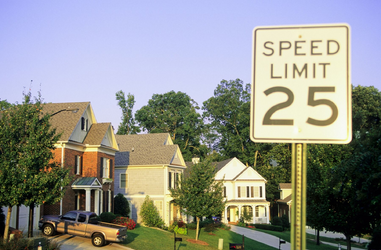
The Louisiana Supreme Court last month cleared a path for the creation of a new city, St. George, after a prolonged legal battle over the feasibility of the city and its implications for tax revenue.
St. George would take almost 100,000 residents away from East Baton Rouge Parish, and critics say it will deplete the parish of the resources from this wealthier, whiter community.
As researchers on racial equity, we have been studying moves like this to create new cities. What we’ve found is that these secessions perpetuate modern-day segregation and limit opportunity for left-behind communities, a form of opportunity hoarding that we call “white fortressing.”
The movement to form St. George started back in 2013, when members of the community attempted to establish their own school district. Over the past decade, the group advocated for local control over more services and revenue until they could make a case for a fully separate city.
St. George’s demographics are quite different from the parish it is part of: Only 12% of the proposed new city’s residents would be Black, while nearly half of the remaining population in East Baton Rouge Parish would be African-American.
White fortressing, and other kinds of opportunity hoarding, concentrates resources — such as well-funded public schools, access to local revenue and zoning control — among white communities that are already economically and politically advantaged. Meanwhile, they also constrain access to opportunity among people of color.
When white communities fortress themselves, they siphon away resources from the larger region, including communities of color. In Louisiana, it is estimated that St. George’s secession would take away $48.3 million in annual tax revenue from East Baton Rouge Parish — nearly 8% of the parish’s total tax revenue.
Racial segregation and the unequal allocation of resources have long shaped American cities, through a history of both overt and subtle racist policies and practices, including racially restrictive covenants, violent resistance to integration and White flight from desegregating communities.
The impact of these practices is well known. They perpetuate inequities in crucial ways, by limiting the quality and types of services that already-underserved communities receive, which adversely affects the health and wealth-building potential of people in marginalized communities for generations. In addition, having more governments in a geographical area — for example municipalities or school districts — has been shown to negatively affect health outcomes for Black Americans, but not for whites.
Proponents of the new city in Louisiana argue that this is a move towards fairness, rather than isolation. On their website, they state: “St. George's taxpayers provide two-thirds of the revenue to the East Baton Rouge Parish government with only one-third of that government's expense in return. Incorporating a city would reverse this unjust circumstance to an extent.” This has been a relatively common argument among similar movements since the post-war era, something Princeton University historian Kevin Kruse documents in his work around white flight in Atlanta. When residents of the Buckhead neighborhood in Atlanta were advocating for secession in 2022, they also argued that they were “not getting back in services what they [were] paying in city taxes.”
These movements have persisted for decades, and they are not slowing down. Georgia has added 11 new cities around Metro Atlanta since 2005, most of which are affluent white communities that broke away from majority-Black/nonwhite counties. Last month, residents of a wealthy, majority-white community in Gwinnett County, the northern suburbs just above Atlanta, voted to approve forming the new city of Mulberry, just as the county has become majority-Black.
Communities and local organizations are doing the grassroots work to counteract different instances of opportunity hoarding. But left-behind and disenfranchised communities do not usually get an opportunity to weigh in when new cities are formed. In both Louisiana and Georgia, only citizens inside the boundary of the proposed new city get to vote by referendum, even if the incorporation would decimate the tax revenue for the surrounding community. These states also don’t have any effective requirements for assessing the impacts of this revenue redistribution on left-behind communities.
Proponents of St. George acknowledge on their website that the city’s formation will reduce East Baton Rouge Parish’s revenue, but they claim that the parish will not be adversely impacted. There’s no way to know for sure, because there hasn’t been a true comprehensive analysis of the economic, health and educational impacts.
Policymakers and the public should know these impacts before considering and approving secession initiatives, and the state should require an assessment. Otherwise, new city formation can become a mechanism for opportunity hoarding and modern-day segregation that deepens racial and socioeconomic inequities.
https://www.bloomberg.com/news/arti...city-secessions-foster-modern-day-segregation (Archive)